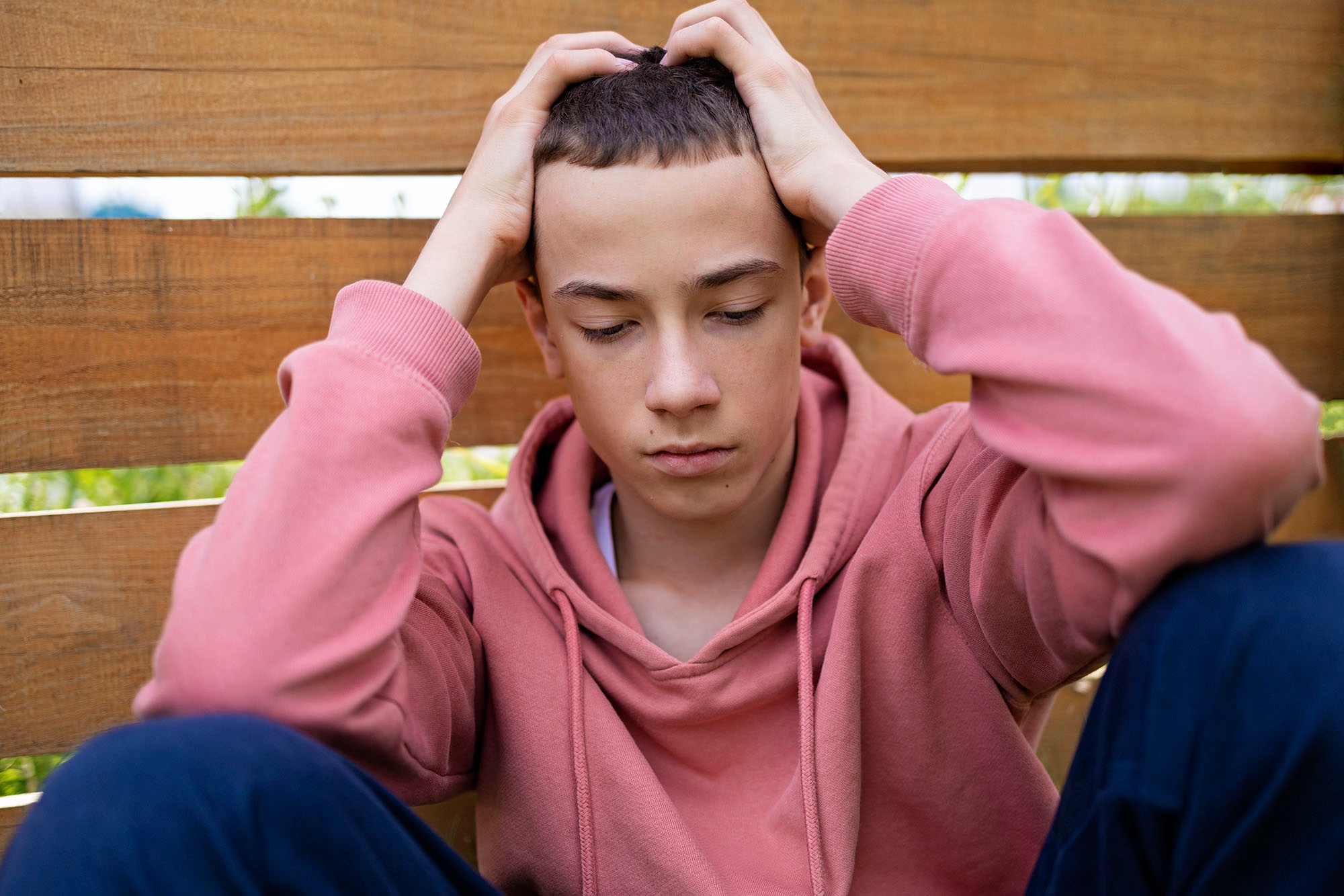Anxiety in Children and Young People
Anxiety is a natural response to everyday difficulties.

It’s normal for children and young people to feel anxious about certain things, just as it’s normal for parents and carers to worry about their children. Most children and young people who are experiencing anxiety don’t require specialist help.
A good deal of what parents and carers already do can be helpful. Normalising anxiety, helping your child to understand their own anxious feelings, and providing support and encouragement can make a big difference.
Just like adults, children and young people feel anxious, worried, or uneasy from time to time. They might worry about friendships, feel a knot in their stomach on their first day at school, or get sweaty palms when they are under stress, like at exam time. During times like this, feeling a little anxious can be perfectly normal.
The good news is this feeling usually passes with time.
If your child is feeling anxious, nervous or panicky, there are small steps you can take to help them, including understanding the reasons why they’re feeling anxious, providing emotional support and find the right professional help, if they need it. You might want to talk to your school, contact your GP, nurse or one of the online support services listed below.
Supporting Positive Wellbeing
Move your body – Being physically active is a great way to manage anxious feelings. Being outdoors will also help reduce anxiety.
Nourish your body
Eating whole foods, high in essential fatty acid is very important for brain health. Avoiding highly processed and sugary foods will help support your body and mind. Eating plenty of fruits and vegetables will support digestion, which can be affected by anxiety.
Hydrate your body
Drinking two litres of water a day (8 glasses) is essential for optimum health. Avoid drinking alcohol, stimulants and sugary drinks as these will worsen symptoms of anxiety.
Switch off/unplug
Less time spent on screens can help reduce levels of anxiety. As anxiety increases, the feeling of being ‘stuck’ often leads to the temptation to scroll and glue yourself to devices and games. This makes the overall feeling of anxiety worse and can result in feelings of overwhelm and burn-out. Swap screens for other activities, which are more calming and less overstimulating.
Allow yourself to play
Evidence suggests that a phone/screen-based childhood increases anxiety in children and young people. Those young people who are switching face to face interactions and play for screen-based interactions and play will feel increased feelings of fear and anxiety in daily life compared to those without long periods of daily exposure to phones and screens. Connecting with other people and nature in the outdoors is a great way to reduce fear and anxiety.
Strategies for Coping with Anxiety and Worry
The below techniques and strategies are sometimes used to help teach children how to cope with their anxiety or worry.
You could encourage your child to:
Use their five senses
Concentrating on what they can see, touch, hear, smell, and taste. For example, you could think together about five things they can see, four things they can touch, three things they can hear, two things they can smell and one thing they can taste.
Take deep “belly breaths”
aking slow, deep breaths can help ease the feelings of anxiety and worry. To help your child do this, have them take a deep breath through their nose, placing their hand on their stomach, and breathing in until their belly expands. Have them hold this for a few seconds, release slowly, and repeat.
Name the feeling and some of the possible affects your child may have experienced.
Ask them how they feel when they are anxious or worried.
Tracking the environment for distractions
For example, ‘can you find 5 circles in the room?’ or ‘can you find 10 blue things?’
Carry a grounding object
For example, this could be a stone, a piece of ribbon, a bracelet, a fidget toy, or something your child finds comforting.
Stretch or move
For example, encourage your child to move their body, this could be wiggling their arms or clenching their toes.
It’s a good idea to practice these techniques when your child is calm, as well as when they are feeling anxious or worried. Regularly practicing these techniques will mean your child is more likely to remember them and use them in situations when they are feeling intense emotions.
Signposting
Further information for children, young people and their families:
SPACE Wellbeing Monmouthshire is a multi-agency process to co-ordinate help, including both early intervention and specialist provision, for children’s mental health and emotional wellbeing. SPACE Wellbeing Helpline: 07977 065376; email ABB.SpaceWellbeingHelpline@wales.nhs.uk open Mon-Fri 9am-5pm.
Monmouthshire help and advice for young people and their families.
Melo. Taking care of our own mental well-being and that of our loved ones has never been more important. That’s why Melo is here to help you to develop new skills that will support you when life is difficult.
The School Nursing Service at Aneurin Bevan University Health Board offer a text service for young people aged 11-19 to seek confidential support and advice from trained School Nurses, text 07312 263 262. If parents / carers would like to seek health and/or wellbeing support for your child, please call 01633 431 685 to be referred to the School Nursing Service.
Childline is a free, private, and confidential service provided by the NSPCC where children and teenagers can talk about anything.
Meic Information, advice and advocacy helpline for children and young people in Wales via phone 080 880 23456, WhatsApp 080 880 23456 and text 07943 114 449.
The Mix is the UK’s leading support service for young people under 25. They help young people take on any challenge they are facing.
Young Minds information on anxiety in teenagers and provides a free 24/7 crisis support text service. Text YM to 85258.
Mind provides information on how to get help and support for your teenager and useful contacts.
Spring is a service intended to empower parents and carers with non-judgmental advice and step-by-step support around looking after your child’s mental well-being.
